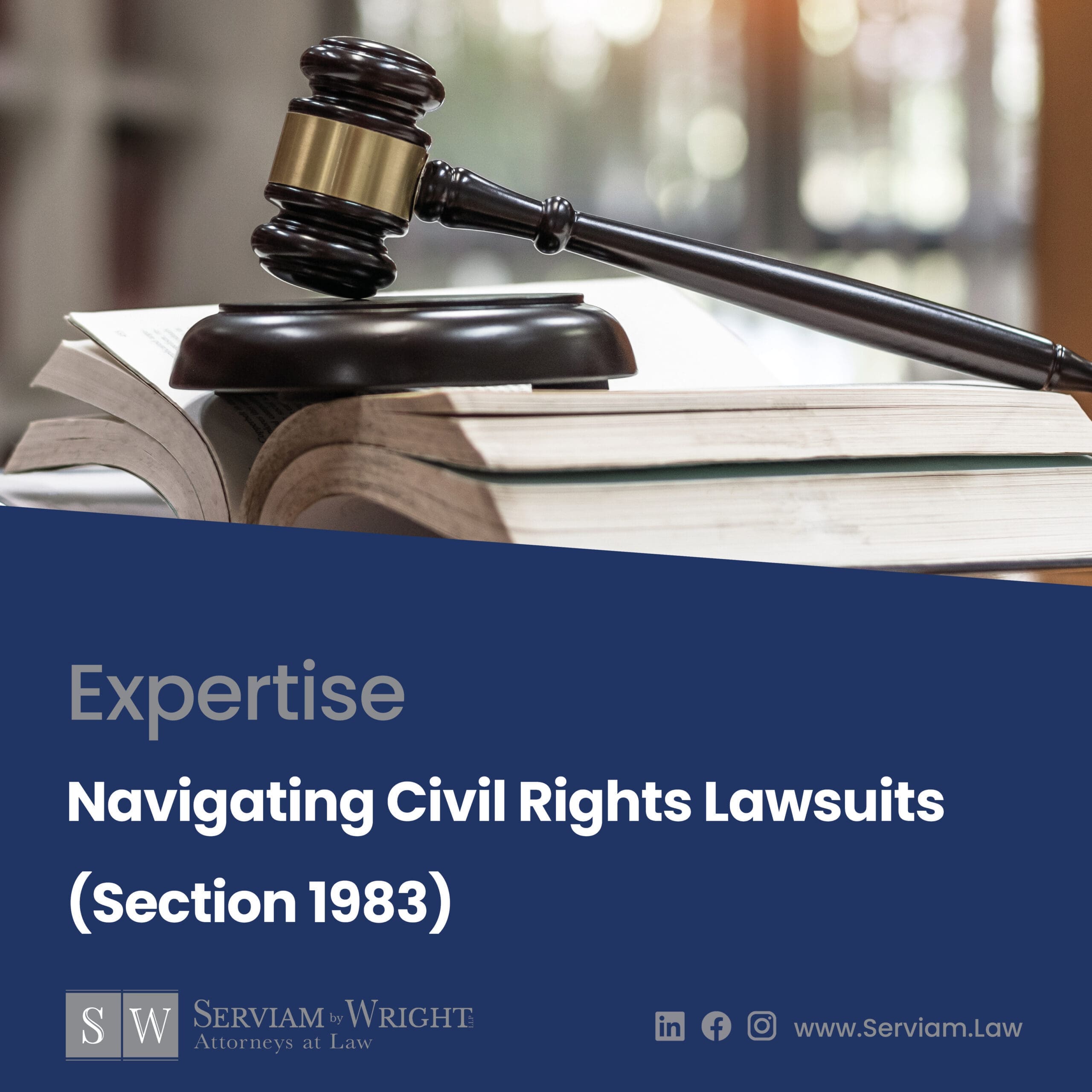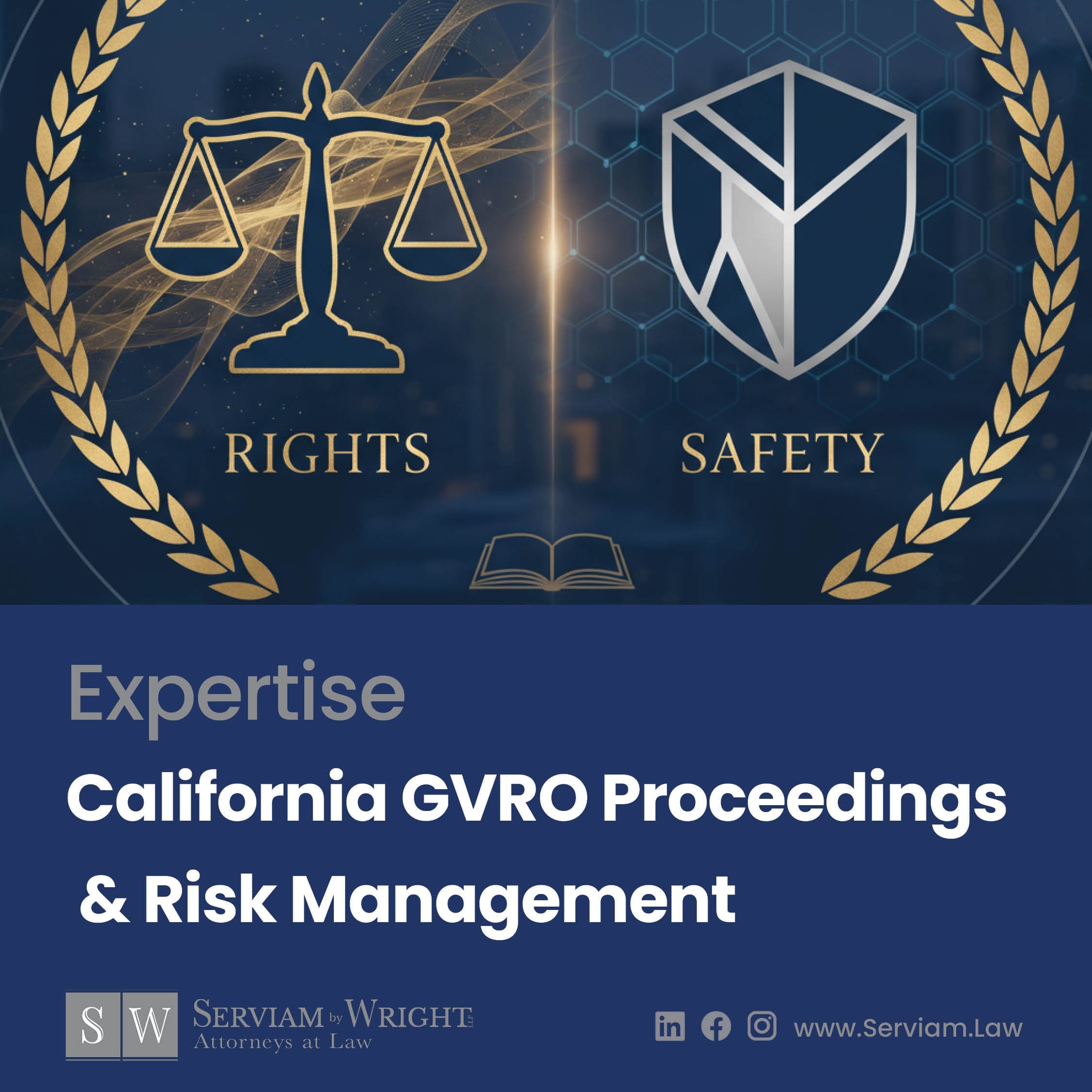Section 1983 Lawsuits: A Growing Risk for Municipalities and Public Agencies
Civil rights lawsuits under 42 U.S.C. section 1983 are among the most common—and costly—legal challenges faced by public agencies today. These claims allege that a city, county, special district, or public agency violated an individual’s constitutional rights. Whether the claim involves excessive force, unlawful search and seizure, or due process violations, Section 1983 litigation places public agencies under significant legal and financial pressure.
At Serviam by Wright LLP, we specialize in municipal liability defense, providing strategic representation to public agencies throughout California. Our attorneys understand the complex interplay between constitutional rights, public safety, and municipal operations—and we help municipalities and public agencies navigate these high-stakes cases with confidence.
Understanding Section 1983 Liability
Section 1983 does not create new rights; instead, it provides a way for individuals to sue when they believe their constitutional or federal rights have been violated by someone acting “under color of law.”
Municipalities and agencies can be held liable under Section 1983 if it is found that an official policy, custom, or failure to train caused the alleged violation. This means public entities can face significant exposure even if the alleged misconduct was by a single employee.
Common Claims Under Section 1983
Public agencies most often face Section 1983 lawsuits based on:
- Excessive Force: Claims that law enforcement used more force than was reasonable under the circumstances.
- Unlawful Search & Seizure: Allegations that Fourth Amendment rights were violated during an investigation, stop, or arrest.
- Due Process Violations: Challenges based on lack of fair procedure (procedural due process) or arbitrary government action (substantive due process).
These allegations can quickly escalate into expensive, high-profile litigation, underscoring the need for experienced municipal defense counsel.
Qualified Immunity and Municipal Defenses
One of the most important legal doctrines in Section 1983 defense is qualified immunity. This protects government officials from personal liability if their actions did not violate “clearly established” constitutional rights.
In addition, municipalities have strong defenses available, including:
- Demonstrating lack of causation between municipal policy or custom and the alleged injury.
- Showing that adequate training, supervision, and oversight were in place.
- Raising statutory defenses under the California Government Claims Act (GCA) when applicable.
A successful defense often turns on a careful early case assessment, strong documentation, and proactive litigation strategy.
The Importance of Policy Review and Training
The best defense to a Section 1983 lawsuit often begins long before litigation is filed. Cities, counties, special districts, and public agencies that invest in regular policy updates, and officer and staff training, are better positioned to defend against claims.
Key areas for focus include:
- Updating use-of-force and investigative policies in line with evolving legal standards.
- Ensuring compliance with Fourth Amendment requirements in searches and arrests.
- Strengthening documentation practices to preserve evidence.
- Demonstrating a consistent commitment to constitutional compliance through training.
Serviam’s attorneys regularly advise public entities on risk management, policy development, and training strategies to help prevent claims before they arise.
Serviam: Experts in Municipal Liability Defense
Section 1983 lawsuits can threaten a municipality’s resources, reputation, and ability to serve the public. Having experienced, specialized defense counsel makes all the difference.
At Serviam by Wright LLP, we are dedicated to defending public agencies against civil rights litigation and municipal liability claims. Our team understands the challenges public agencies face, and we provide tailored defense strategies to protect their integrity and functionality.
For strategic guidance and representation, contact Serviam’s Senior Of Counsel Attorney Kayla Watson at Watson@Serviam.Law.
Kayla Watson is an expert in municipal liability defense law, and she is the Senior Of Counsel Attorney at Serviam by Wright LLP (“Serviam”). Kayla may be contacted about this article at Watson@Serviam.Law. Serviam articles are not legal advice. Additional facts or future developments will affect the subject of this article. Seek the advice of an attorney before acting upon any information in this article.





